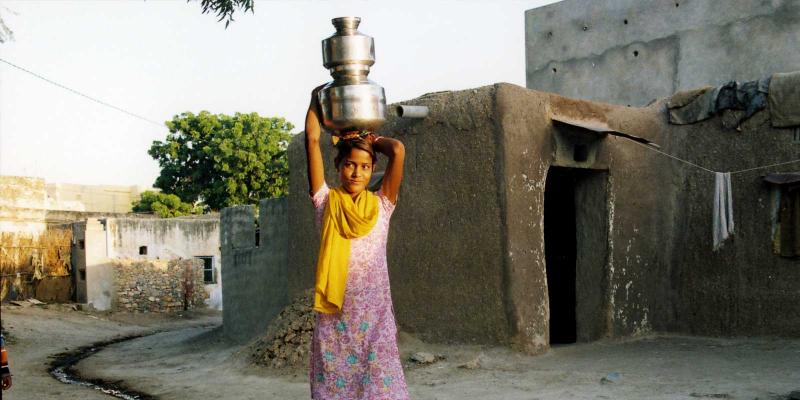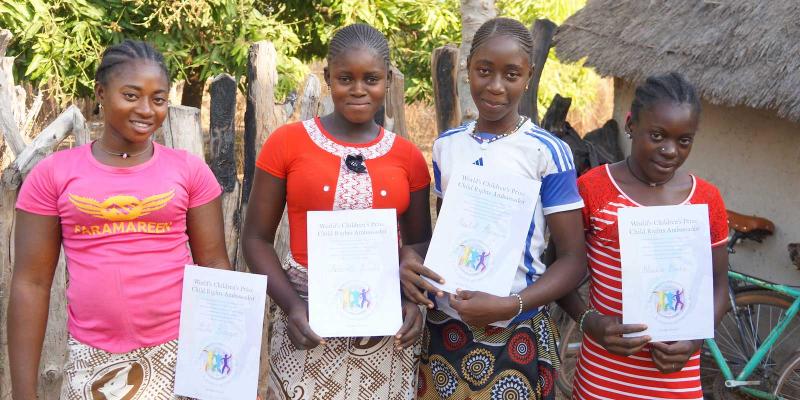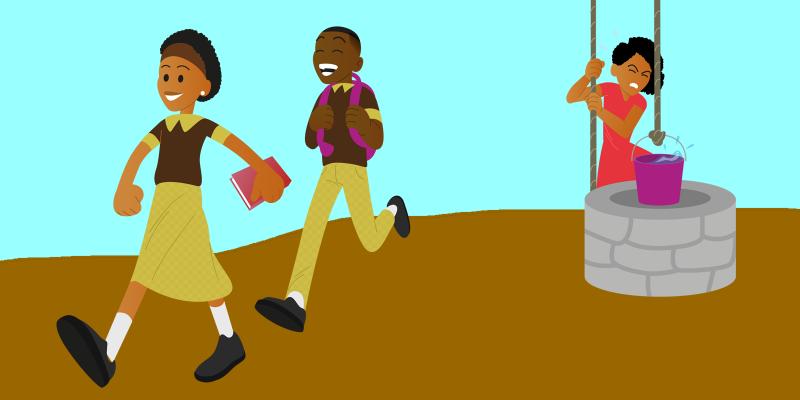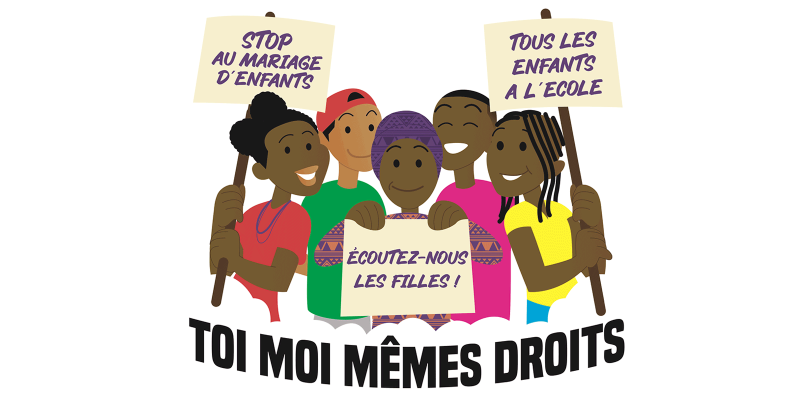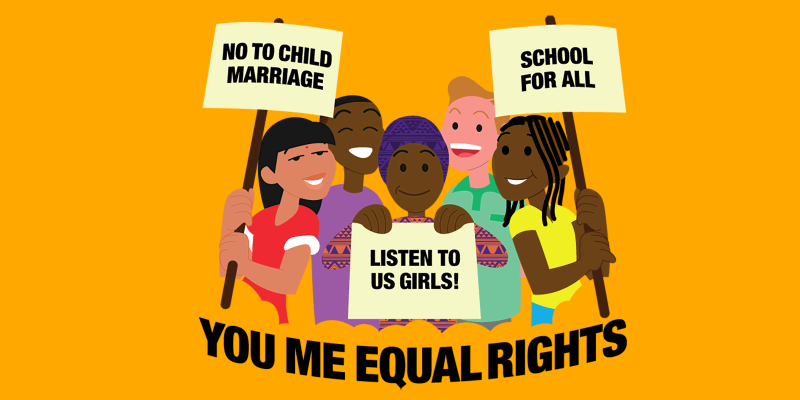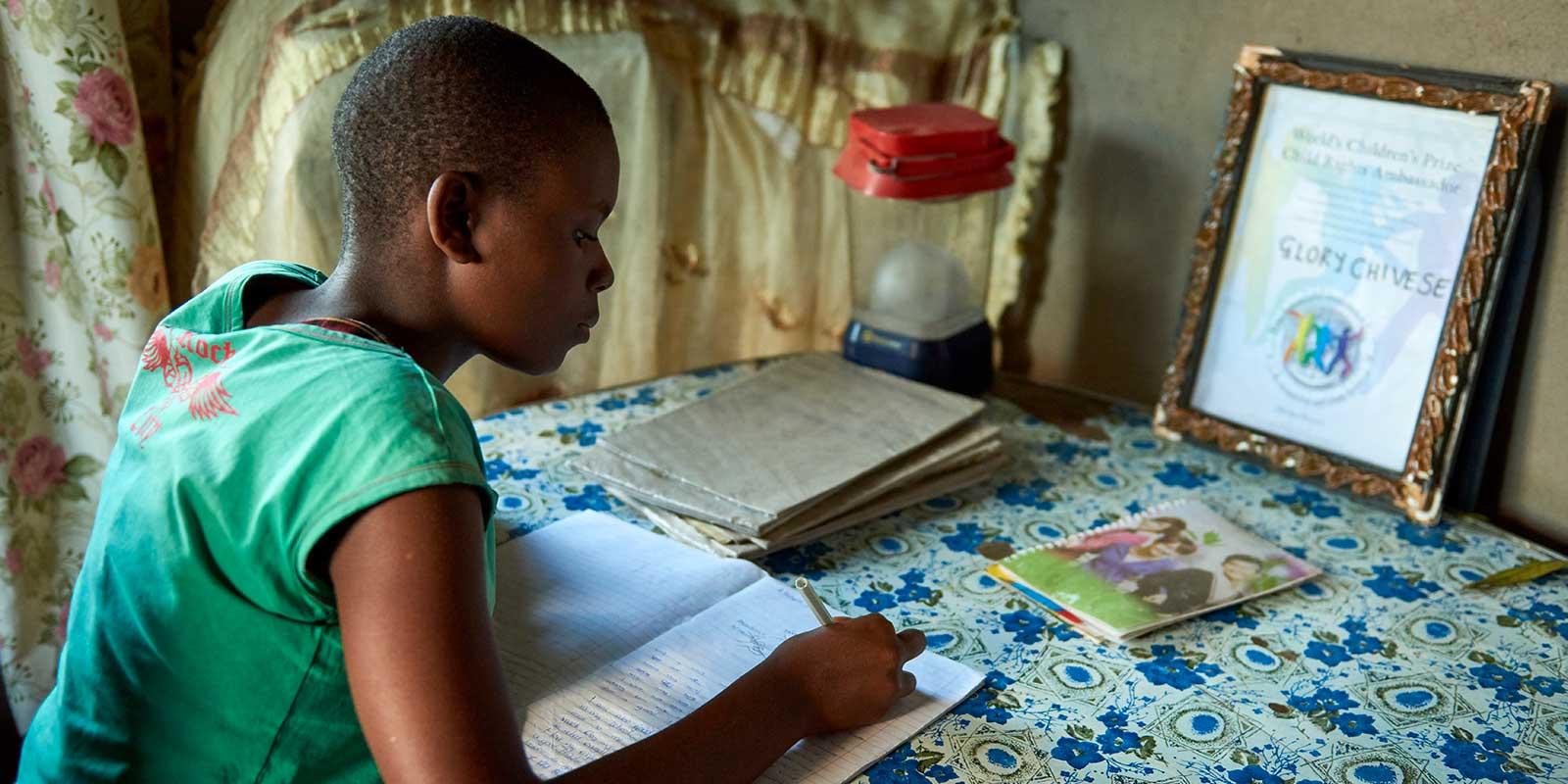
“Gender equality is a human fight, not a female fight!” That’s what it says on the flyers that Talkmore makes and hands out on the weekends. “That’s exactly right. And gender equality isn’t just something that will make life better for us girls, it will be better for everyone,” says his friend Glory. She and Talkmore are Child Rights Ambassadors and part of the initaive You Me Equal Rights, where gilrs and boys fight for gender equality together.
It’s lunch break at Manyaira Secondary School in Zimbabwe, and in the shade of a few trees, Glory and Talkmore have gathered together a group of pupils to talk about girls’ rights and gender equality. They meet at least once a week. The group is made up of boys and girls. For Talkmore and Glory, who are WCP Child Rights Ambassadors, this is a really important issue. “I wanted to be a Child Rights Ambassador because girls are in danger here. We are not respected and no-one listens to us. I’ve seen many girls being forced into marriage, sexually abused and forced to quit school. As an ambassador, I wanted to warn other girls because those who take advantage of us are often the people who should be protecting us, such as dads, uncles, other family members, teachers and neighbours,” says Glory.
Talkmore shakes his head sadly as he listens to Glory. “As a boy I’m ashamed to see how boys and men treat girls and women in our community.”
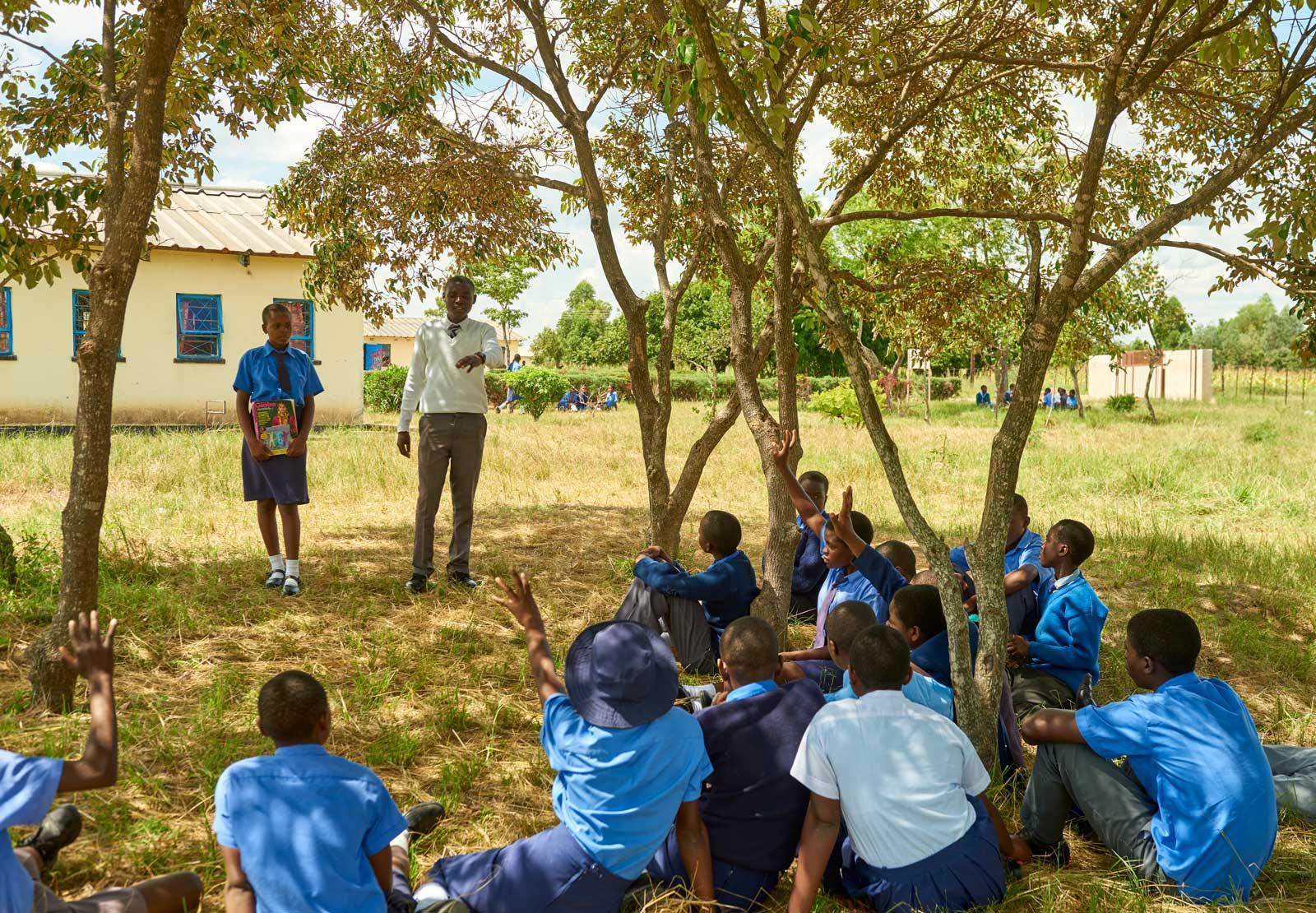
Boys seen as having more value
“Here, boys and girls do not have the same value. Boys are taught very early on that they are superior to girls, and to treat us as inferior beings. Even if the oldest child is a daughter, it’s a much younger little brother who makes the decisions in the house if the dad isn’t there. In some families they even decide over the mum!” says Glory. “It’s also tradition for the girls to do all the tough household chores. When my sisters were cleaning, cooking, washing clothes and doing all sorts of other things, I was allowed to hang out with my friends and have a game of football and play! My sisters weren’t allowed to spend time with their friends after school at all,” says Talkmore.Wanted to help girls
When Glory was trained as a WCP Child Rights Ambassador, she realised that all this was wrong. “During the lessons we read The Globe and learned that girls and boys have the same right to an education, protection, influence, play...everything! And that what we girls are suffering here in Zimbabwe is a violation of our rights.” Glory and other girls who had been trained as ambassadors started to bring pupils at the school together to talk about girls’ rights and gender equality. Talkmore noticed what was going on. “When I saw how the girls were working, I felt that I wanted to help too.” Talkmore was also trained to be a WCP Child Rights Ambassador and started helping Glory in her work for gender equality.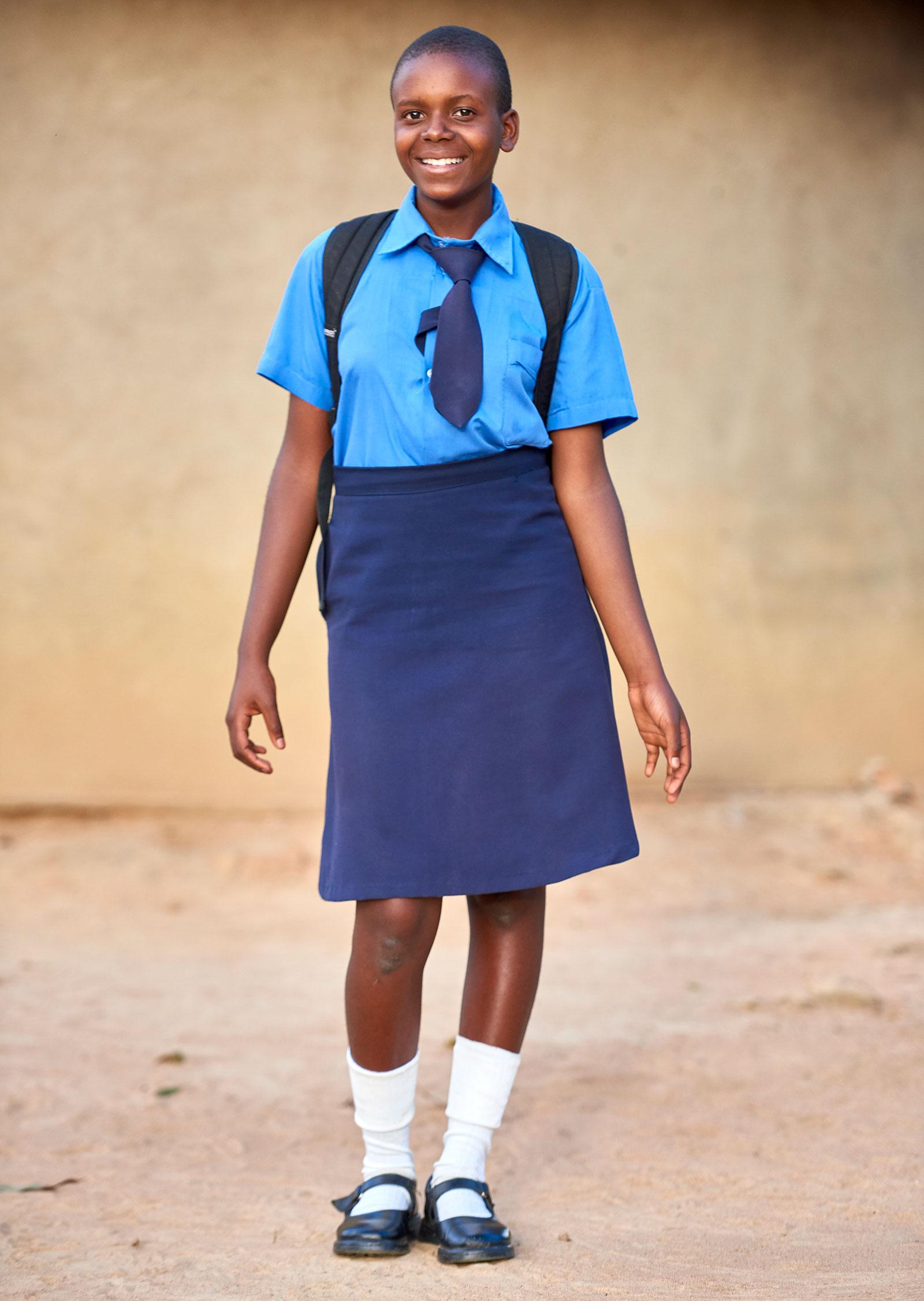
Influencing other boys “I think it’s really important for boys to be Child Rights Ambassadors too, so people can see that we’re fighting for girls’ rights together, and that we see one another as equals. Then everyone who meets us can learn about equality just by looking at us!” says Glory, laughing. Talkmore agrees. “Boys definitely have to be ambassadors for girls’ rights. Partly because the girls then feel they have our support, but also because we boys can influence other boys. Unfortunately, boys here still listen more to other boys, which is why it’s important for us to be involved. But, of course, boys must show equal respect for the girl ambassadors, and I’m sure that will happen the more we Child Rights Ambassadors work together.”
Keen to reach everyone
Both Talkmore and Glory work to share knowledge about girls’ rights beyond their school as well. Sometimes together, sometimes on their own. “I help out at our village child rights club every weekend. Several of the girls in the club have experienced awful things, such as assault and child marriage. Many don’t go to school, but they still need to know about their rights. That’s why I help out there.” “And I do flyers about girls’ rights, which I make myself and hand out on the weekends. I often make the flyers at school during study time,” explains Talkmore.Being themselves
Both Glory and Talkmore agree that it’s absolutely essential for girls to have more knowledge, and through that knowledge gain courage and be confident about demanding their rights, but also that boys learn and understand about girls’ rights and gender equality.Related stories
Långgatan 13, 647 30, Mariefred, Sweden
Phone: +46-159-129 00 • info@worldschildrensprize.org
© 2020 World’s Children’s Prize Foundation. All rights reserved. WORLD'S CHILDREN'S PRIZE®, the Foundation's logo, WORLD'S CHILDREN'S PRIZE FOR THE RIGHTS OF THE CHILD®, WORLD'S CHILDREN'S PARLIAMENT®, WORLD'S CHILDREN'S OMBUDSMAN®, WORLD'S CHILDREN'S PRESS CONFERENCE® and YOU ME EQUAL RIGHTS are service marks of the Foundation.



